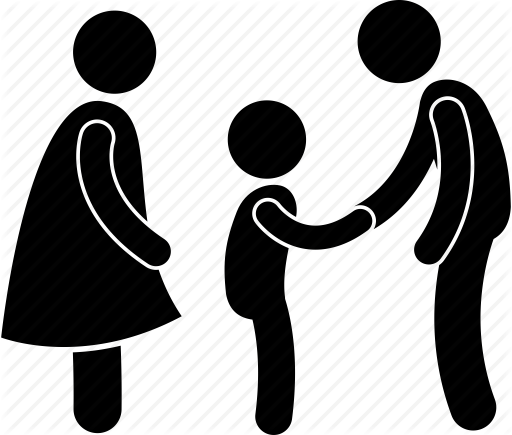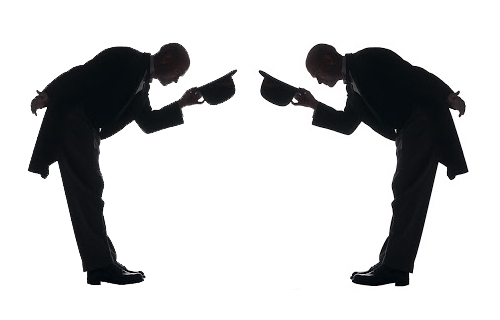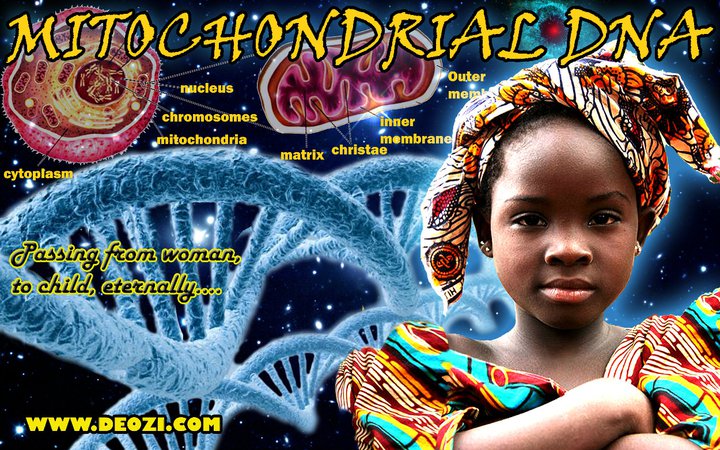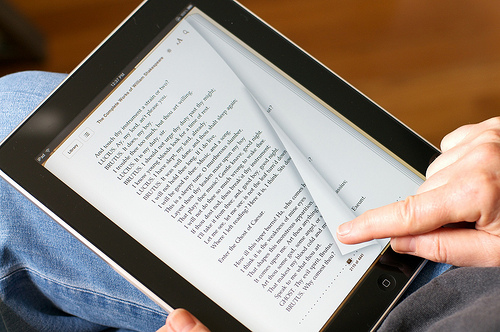PEOPLE ARE BOOKS
People are books,
Read the lips of those
that know things that don’t flow from the tips
Of a pen.
Read people that are not judged
By their appearance, they often have
More food for thought than your table of content.
Read body languages that die as soon as
Words try to touch them.
Read people to find what you missed while reading in
Between the lines of your favourite book.
Listen to those that know the world even
If they have never lifted a pen,
Read every day, read everywhere, read everybody,
All around you is a school, the only thing
You need to pay is attention.
DON’T EXPECT RESPECT IF YOU WANT PEACE OF MIND
“Children are now tyrants, not the servants of their households. They no longer rise when elders enter the room. They contradict their parents, chatter before company, gobble up dainties at the table, cross their legs, and tyrannize their teachers”.
–Socrates (469–399 B.C.)
In my undergraduate days, I once heard my neighbours haranguing as they often do, the bone of contention I can’t recall but I remember one of them reminding the others of the English adage that “greeting is not love”. “Greeting is not love”; I have long been chewing on that adage even without recalling the bone of contention then. I recall again, my mid teens, one evening after a church programme where I was rebuked for reaching for a handshake from two of my elders: I didn’t expect the rebuke; though older, they were both young and were very jovial with me. The memories of that evening always haunt me; I remember how numb and embarrassed I felt, how my arm hung in the air like someone with a boil in his armpit. “In African culture” one of them went to say, “you don’t offer your elders handshake, you wait for them to make for the gesture before you reciprocate”. That lesson penetrated into my consciousness deeper than being flogged in an assembly.

As history often repeats herself, a similar incident occurred, this time, I was an observer. I was strolling with one of my closest friends when we met a mutual friend or acquaintance of ours who just wrote his final year exams, he was strolling with his girl friend. He was slightly older than both of us and was much closer to me than he was to this other friend of mine. When my younger friend reached for a handshake, the older rebutted the gesture by quipping something along the line that a “year one student does not offer a graduate a handshake”. My fellow undergraduate was irked and walked away and if not for my intervention would have returned later for a confrontation because he was almost of the same stature as that other friend of mine. He said they were graduates in his own household and that he had mingled with several other graduates who never embarrassed him in that manner. Hahaha! Those were the good old days, before social media became the in thing where we all migrated to.
A journalist told me the other day that “The internet has no gate keepers”. The internet seems to have made matters worse with regards to respect, especially for elders. There are plenty instances of cyber bullying, trolling etc. Earlier this year, the Nigerian politician and billionaire Jimmoh Ibrahim, referring to the Nigerian youths on twitter, remarked that,
“You people don’t have any iota of respect on this platform. Is this how y’all relate with folks old enough to be your father?.”
A young twitter handler in turn replied,
“twitter isn’t where politicians donate bags of rice to buy fake respect”.
Ah! You can trust the Nigerian youth when it comes to speaking with tongue in cheek; the tweet generated over one hundred and eighty re-tweets with tones of hilarious comments. In truth, he actually got served because his penultimate tweet was considered a slight on former President Goodluck Ebele Jonathan.

As Africans and Nigerians in particular; while growing up, whether you were a Yoruba who prostrated before an elder or an Igbo who bowed to elders, we were taught to be respectful of grownups, we often referred to people older than we were as “Uncle”, “Brother” or “Auntie”; even when we were not biologically linked to them: it was as if our tongue will cleave to our mouth if we call them directly by their names. In African tradition, even if an elder were poor, his or her grey hairs were enough to command respect. An elder was thought to be a repository of the wisdom and the ways of his or her people: it was believed that he who listened to an elder listened to the oracle because elders were next to the ancestors. Respect is reciprocal even when greeting is not love. A sane person looking around the world today would wonder what has happened to the deference that was once shown to elders in the past: have the old stopped respecting themselves or have young people forgotten that they are growing older?. “It takes a whole village to raise a child” but we now live in a society where you dare not rebuke, spank or correct another person’s child when he or she is doing wrong; teachers are now afraid to correct their pupils in order not to incur the wrath of their parents or guardians.
I saw my first strand of grey hair last year even though I no longer see it, I might not be very advanced in age but am older than most of these millennials I come across; millennials who seem to behave as if they have some nuts loosed upstairs. In order to preserve my peace of mind, I have decided not to expect respect from them especially through greetings or exchanging of pleasantries. I have come to the conclusion that there is nothing wrong with wishing anybody “good morning”, “good afternoon” or “good evening”, because a good day is not the prerogative of age, it is what everybody should ordinarily be experiencing. So I can greet people younger than I am if I step into a place and they lack the common sense to do the needful, I will wish them a “good morning”, a “good afternoon” or a “good evening” because my peace of mind and the peace I want to see around me is more important than their improper upbringing.

YOU MUST NOT BE OBESE BEFORE YOU WORK OUT
The average Nigerian does not expect you to exercise once you are not obese, just as he or she does not expect you to read outside your discipline or read at all if you are not a student. When you are about to work out for instance, you are likely to get questions like, “O boy, why you dey suffer yourself dey run, dey done start any recruitment? abi you wan join soldier?”. Working out in Nigeria is seen as something only the obese should do or something an applicant should do in preparation for military or paramilitary recruitment and that’s how we sometimes end up sick, seeking medical and spiritual interventions here and there while we have not done much within our power to be hale and hearty. Our bodies are the temples of God, the Holy Spirit or our ancestors and exercise is part of making them worthy of their presence.
I weigh about 65 Kg, so I have every reason not to work out but I have been working out for almost half a decade now; there are periods where I would work out almost everyday and there are days, weeks or even months where I would not even work out at all, that is, if you take working out to mean just running. Work out in general is to “exercise in order to improve the strength or appearance of your body”, it is not limited to running alone, so if you don’t see me running on most days, I might just be indoors doing some calisthenics.
More so, I don’t play football, tennis or partake in any competitive sport, so running for me is a way of making up for my lack of participation in those sports. In addition, I love simplicity; activities like yoga etc might appeal to members of the upper class or people in other parts of the world but I am an average Nigerian and which average Nigerian has time or space for things like Yoga? So I run for both physical and mental or spiritual edification.
As I engage in a running gait at the wee hours of the day, the relaxed ambience of the morning sets my mind in a meditative mode, so I think about a lot of stuff. I relish the fact that working out is becoming trendy among young people of both sexes, suggesting that we are are becoming more health conscious. I get inspired on several occasions by people in their sixties working out; the sight of pregnant women exercising with their partners to ensure the safe delivery of their progenies also gladdens my heart in more ways than one.
I reflect on a lot of things as I jog, I think of the men and women who sweep the roads before the break of dawn, how before the cockcrows they diligently carry out their chores. The sight of sex workers from several mornings sometimes linger in my mind, I often recall the funny altercations they had with their “customers” or “clients” as I run by; I think of them as bed bugs slipping into the crevices of dawn, disappearing before the break of day. At dawn, black marketers, petty traders, people making their way to the garage and conductors beckoning on customers to board their vehicles; all set up my mind for the hustle and bustle of the day.
There is also an esprit de corps that exist among those who jog in the early hours of the day; most joggers clap as they speed pass you as a sign of encouragement, a nod of affirmation which often grows into friendship. What often uplifts my spirit the most is the scenery of the atmosphere at that moment when the moon kisses the skies goodbye, wishing the sun good luck as it begins to smile on all and sundry.
I AM A GIRL CHILD

I am a girl child
I carry more memories than the diary
Of Anne Frank
I carry more resolve than Arya Stark
I am your daughter
I am your sister
Let me grow into a woman
I am no lesser than a man
Some day
I will be a lover, a wife, a mother.
I am more than sugar to some Daddy
Between my DNA strands are not HIStory but HERstory
Of mothers that rocked the cradles of kings, of princesses turn queens
Of matriarchs that womb men,
I am a child not bride
I aspire to be more than a slay queen,
More than a fuck girl
I am your daughter
I am your sister
Let me grow into a woman
Any man born of a woman should let me grow
Into a woman.
WHY E-BOOKS MATTER
I do not care — I do not believe it matters — whether these books are paper or digital, whether you are reading on a scroll or scrolling on a screen. The content is the important thing”. –Neil Gaiman.
In the past few months they have been jubilations as reports from several quarters have indicated a decline in the sales of electronic books, what this is suppose to imply is that more people are now reading paper back or hard cover books than e-books. But is the sale of prints really the bench mark for measuring the rates at which e-books are read? Understandably most people prefer the olfactory and tactile feel of the physical book to the pixilated world of e-books but this have more to do with conditioning, orientation and the hunger for the material to be read.

Evolving from stones, tree barks, clay, metal sheets, papyrus etc, hard copy books have been with us for ages but the e-book is a new phenomenon. The first e-book in the world was produced only in 1971 by Michael S. Hart; the same year in which the first e-mail was sent by Ray Tomlinson. The e-book as it is, is still in its infancy and technological advances will make sure it keeps the hard copy on its toes. The future as Thomas Edison predicted over a century ago is indeed with the e-book because people are becoming more tech savvy.
We cannot talk about the influence of e-books and not talk about the influence of public domain books. A public domain book is a book that was either never copyrighted or one whose copyrights has expired or was forfeited. Some books can be subjected to copyrights in one country but be in public domain in another. All around the world books are constantly losing their licenses or copyrights to become public domain property; people who gloat at the recent fall in the sales of e-books are not paying attention to the availability of e-books in public domain or the efforts that are being made to convert books in public domain into electronic forms; books which are in for “unlimited redistribution and infinite availability”.
There are many sites which have it as their aim to use volunteers to create and distribute e-books for public consumption, sites such as Internet archive now have it as their goal to make available at least 4 million e-books by 2020, Library Genesis already boasts of over 32 million e-books and project Gutenberg, a pioneer in book digitization boasts of over 50, 000 e-books and an average of over 2 million monthly e-book downloads; add that to the number of the various institutions of learning across the globe with portals for downloads of e-books and you will see that the sales of e-books are not the correct yard stick to gauge the growth of electronic books.
The fact that people are not buying e-books from major online outlets does not mean they are not getting them from other sources; some of those outlets are even often not exempt from hackers with hunger for some e-titles. Speaking of hunger, people often result to the reading of e-books for economic reasons, there are people with constant power supply, access to the internet, laptops or PCs who live below two dollars a day; will this demographic if passionate about learning not result to the reading of e-books to overcome whatever cognitive dissonance that might want to stand in their way of self improvement?
The matter at hand is more about conditioning than about the medium of materials; we have been conditioned over the years to have the tactile and olfactory feel of whatever we are reading and as old habits die hard, we might need to recondition ourselves to enjoy this new vista of the e-book that has been opened before us. Apart from the e-book being of great importance to the print disabled and dyslexic persons, in addition to the fact that there are books that are only available in electronic forms, there are great advantages the average e-book reader can enjoy especially if he or she is connected to the internet while reading. For instance, you can look up a word that’s new to you, copy and paste its meaning as a comment on that word in the e-book and it will be there when you eventually want to read the book again. How about the ease with which we can copy highlighted parts of e-books; with the e-book it is a matter of copy and paste but with prints you have to manually copy everything into a scrap book and sometimes you don’t because of the volume of the highlighted passages. In fact one can actually make more notes or observations on an e-book than on a hard copy book.
See, I am a lover of books, so I often mourn the demise of books that leave my shelf and never make their return; it irks me to think of them as the dead who have gone to the hands or lands of no return. But with the e-books things are different; you can share them with friends and never worry about their return and sometimes the pages you have highlighted and the marginalia in them will make it easier for them to read.
To be adventurous is the first thing the reading of books teaches us, to leave our comfort zones and explore other shores either outside or within our own minds; every true learner knows that in addition to improving our working memory, new skills increase our vocabulary, communication skills and confidence. Those who whine about e-books just need to unplug themselves from the matrix of their conditioning, they have plenty to gain when they add the ability of reading e-books to their arsenal: they have economy of space, time, money and flexibility of use, they in other words become amphiliterate; having the ability to read both prints and e-materials comfortably. The future is with the e-book and other digital means of assimilation of information, one should therefore not be among the illiterates of the digital age whom the psychologist Herbert Gerjuoy referred to as not those who “cannot read and write, but those who cannot learn, unlearn, and relearn”.
ANCESTORS
They chewed sticks to clean their teeth
Which grew strong and white like elephant tusks
We brush daily with paste
Yet have brown teeth with cavities
They ate in huts, in earthen pots and lived longer and together
We eat in joints of fast food
Pounded yam giving way to boiled noodles
And so we die fast like birds with flu
No schools but they listened to elders
Word was bond, so they had no need for contracts
Communalism was the way of life, so no need for jails
Yes, there were wars
But with them, blood was always thicker than water
They had no handheld devices, so they held each other’s hands
And avoided vices
They were one with nature, so found cures in herbs
But slowly we peel away from them
Us who have found no use for their gods
Us who chew gums in place of kola nuts
Us who have left ancient paths beaten by men
Who knew the ancient landmarks
Us who have lost the dance steps to the drums they left us
Speaking in strange tongues, imbibing strange ways
Singing to strange gods.










